The Patriarch of Bulgaria and Metropolitan of Sofia undertakes visits of behalf of the Bulgarian Orthodox Church.


The Eastern Orthodox Church, officially the Orthodox Catholic Church, and also called the Greek Orthodox Church or simply the Orthodox Church, is the second-largest Christian church, with approximately 230 million baptised members. It operates as a communion of autocephalous churches, each governed by its bishops via local synods. The church has no central doctrinal or governmental authority analogous to the head of the Catholic Church. Nevertheless, the Ecumenical Patriarch of Constantinople is recognised by them as primus inter pares, a title formerly given to the patriarch of Rome. As one of the oldest surviving religious institutions in the world, the Eastern Orthodox Church has played an especially prominent role in the history and culture of Eastern and Southeastern Europe.
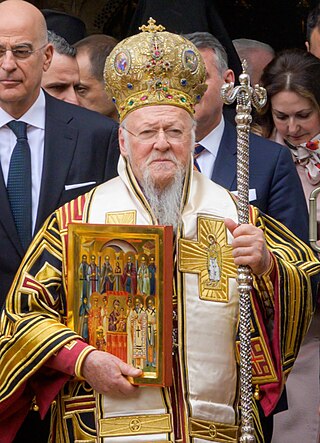
Bartholomew is the 270th Archbishop of Constantinople, since 2 November 1991. In accordance with his title, he is regarded as the primus inter pares in the Eastern Orthodox Church, and as a spiritual leader of the Eastern Orthodox Christians worldwide.

The Ecumenical Patriarchate of Constantinople is one of the fifteen to seventeen autocephalous churches that together compose the Eastern Orthodox Church. It is headed by the Ecumenical Patriarch of Constantinople.

The Syriac Orthodox Church, also known as West Syriac Church or West Syrian Church, officially known as the Syriac Orthodox Patriarchate of Antioch and All the East, and informally as the Jacobite Church, is an Oriental Orthodox church that branched from the Church of Antioch. The bishop of Antioch, known as the patriarch, heads the church and possesses apostolic succession through Saint Peter, according to sacred tradition. The church upholds Miaphysite doctrine in Christology, and employs the Liturgy of Saint James, associated with James the Just. Classical Syriac is the official and liturgical language of the church.

The Bulgarian Exarchate was the official name of the Bulgarian Orthodox Church before its autocephaly was recognized by the Ecumenical See in 1945 and the Bulgarian Patriarchate was restored in 1953.

The Ukrainian Orthodox Church – Kyiv Patriarchate was an Orthodox church in Ukraine, in existence from 1992 to 2018. Its patriarchal cathedral was St Volodymyr's Cathedral in Kyiv.

Patriarch Filaret is a Ukrainian religious leader, currently serving as the primate and Patriarch of the Ukrainian Orthodox Church – Kyiv Patriarchate. The Orthodox Church of Ukraine, that he left in 2019, views him as the Honorary Patriarch emeritus, while the Ecumenical Patriarchate of Constantinople recognises him as former Metropolitan of Kyiv. He was formerly the Metropolitan of Kiev and the Exarch of Ukraine in the Patriarchate of Moscow (1966–1992). After joining the Kyiv Patriarchate, he was defrocked and in 1997 excommunicated by the ROC.

The Macedonian Orthodox Church – Archdiocese of Ohrid, or simply the Macedonian Orthodox Church (MOC) or the Archdiocese of Ohrid (AO), is an autocephalous Eastern Orthodox church in North Macedonia. The Macedonian Orthodox Church claims ecclesiastical jurisdiction over North Macedonia, and is also represented in the Macedonian diaspora. The primate of the Macedonian Orthodox Church is Stefan Veljanovski, the Metropolitan of Skopje and Archbishop of Ohrid and Macedonia.
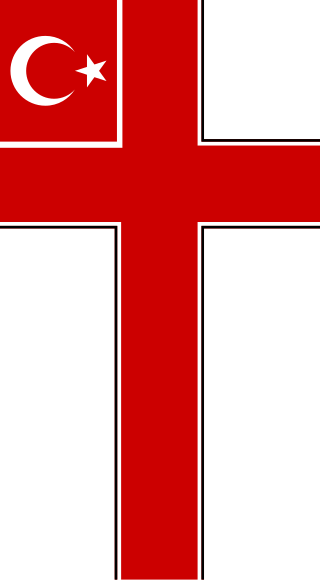
The Autocephalous Turkish Orthodox Patriarchate, also referred to as the Turkish Orthodox Church, is an unrecognized autocephalous Eastern Orthodox organisation based in Turkey, descending from Turkish-speaking Eastern Orthodox Christians. It was founded in Kayseri by Pavlos Karahisarithis, who became the patriarch and took the name of Papa Eftim I, in 1922.

Religion in Turkey consists of various religious beliefs. While Turkey is officially a secular state, numerous surveys all show that Islam is the country's most common religion. Published data on the proportion of people in Turkey who follow Islam vary. Because the government registers everyone as Muslim at birth by default, the official statistics can be misleading. There are many people who follow other religions or do not adhere to any religion, but they are officially classified as 'Muslim' in official records unless they make a contrary claim. These records can be changed or even blanked out on the request of the citizen using a valid electronic signature to sign the electronic application. According to the state, 99.8% of the population is initially registered as Muslim. The remaining 0.2% are Christians and adherents of other officially recognised religions such as Judaism. As much as 90% of the population follows Sunni Islam. Most Turkish Sunni Muslims belong to the Hanafi school of jurisprudence.
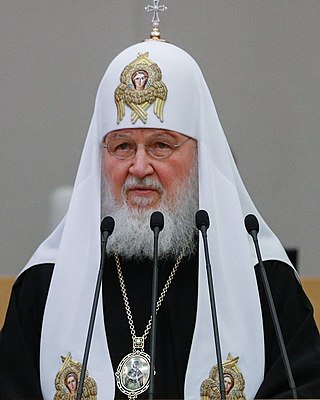
Kirill or Cyril is a Russian Orthodox bishop. He became Patriarch of Moscow and all Rus' and Primate of the Russian Orthodox Church on 1 February 2009.
Christianity in Turkey has a long history dating back to the early origins of Christianity in Asia Minor during the 1st century AD. In modern times the percentage of Christians in Turkey has declined from 20-25% in 1914, to about 2% in 1927, to 0.2–0.4% today Sources estimate that the Christian population in Turkey ranges between 180,000 and 320,000. However, the exact number remains unclear due to the absence of a religious census in the country. The percentage of Christians in Turkey fell mainly as a result of the late Ottoman genocides: the Armenian genocide, Greek genocide, and Assyrian genocide, the population exchange between Greece and Turkey, the emigration of Christians that began in the late 19th century and gained pace in the first quarter of the 20th century, and due to events such as the 1942 Varlık Vergisi tax levied on non-Muslim citizens in Turkey and the 1955 Istanbul pogrom against Greek and Armenian Christians. Exact numbers are difficult to estimate as many former Muslim converts to Christianity often hide their Christian faith for fear of familial pressure, religious discrimination, and persecution.
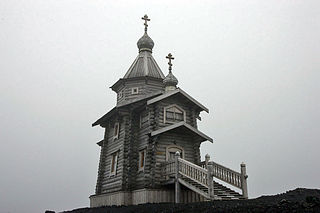
Christianity in the 21st century is characterized by the pursuit of church unity and the continued resistance to persecution and secularization.
Based on the numbers of adherents, the Eastern Orthodox Church is the second largest Christian communion in the world, after the Roman Catholic Church, with the most common estimates of baptised members being approximately 220 million. The numerous Protestant groups in the world, if taken all together, substantially outnumber the Eastern Orthodox, but they differ theologically and do not form a single communion.
This is a timeline of the presence of Eastern Orthodoxy in Greece from 1974 to 2008. The history of Greece traditionally encompasses the study of the Greek people, the areas they ruled historically, as well as the territory now composing the modern state of Greece.

The Pan-Orthodox Council, officially referred to as the Holy and Great Council of the Orthodox Church, was a synod of set representative bishops of the universally recognised autocephalous local churches of the Eastern Orthodox Church held in Kolymvari, Crete. The Council sat from 19 to 26 June 2016.
This is a timeline of the presence of Eastern Orthodoxy in Greece from 2008. The history of Greece traditionally encompasses the study of the Greek people, the areas they ruled historically, as well as the territory now composing the modern state of Greece.
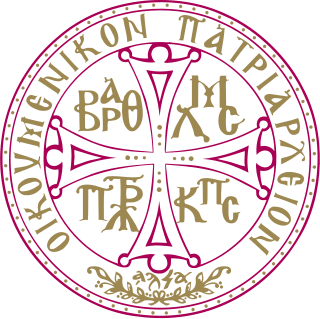
The Eastern Schism, also known as the 2018 Moscow–Constantinople schism, is a schism between the Russian Orthodox Church and the Ecumenical Patriarchate of Constantinople, which began on 15 October 2018 when the former unilaterally severed full communion with the latter.
On 15 October 2018, the Russian Orthodox Church broke the communion with the Ecumenical Patriarchate because of a dispute concerning the canonical jurisdiction over Ukraine. This led to the 2018 Moscow–Constantinople schism. Numerous Orthodox churches took position concerning the dispute over the canonical jurisdiction over Ukraine, whether before or after this schism.